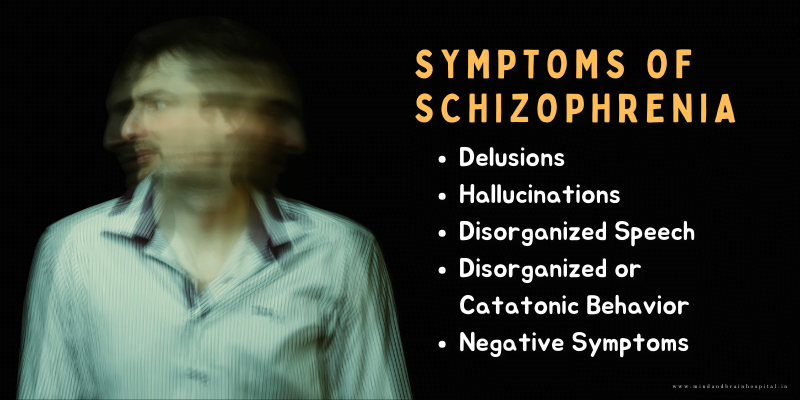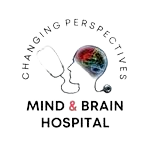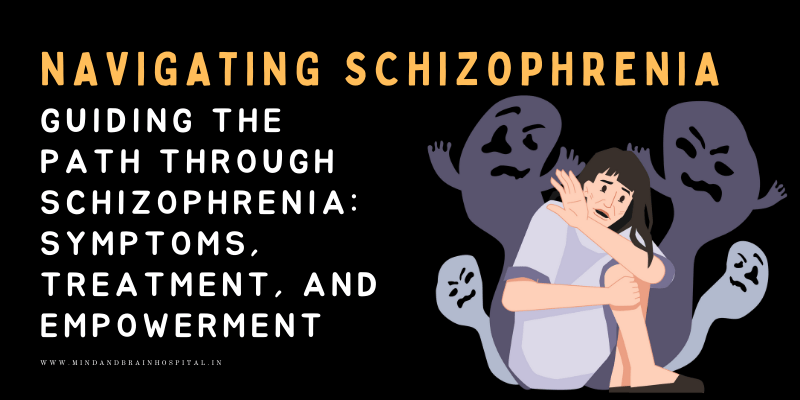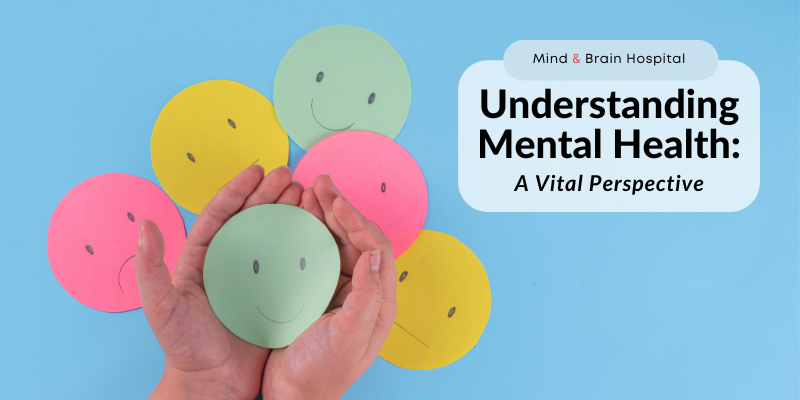Guiding the Path through Schizophrenia: Symptoms, Treatment, and Empowerment
Schizophrenia is a chronic brain disorder characterized by delusions, hallucinations, disorganized speech, cognitive difficulties, and a lack of motivation. Episodes in which patients cannot differentiate between real and unreal experiences may indicate an active illness. The intensity, persistence, and frequency of symptoms can vary depending on the individual and the illness. Stressful conditions, alcohol or illicit drug use, and improper prescription medication use often exacerbate symptoms.
Symptoms:

As outlined in the Diagnostic and Statistical Manual of Mental Disorders (DSM), schizophrenia symptoms can be categorized as follows:
1. Delusions: These are false beliefs that persist despite strong evidence to the contrary. For instance, individuals may believe that someone is controlling their thoughts, words, or actions.
2. Hallucinations: People with schizophrenia may perceive things that don’t exist, such as hearing voices when no one is speaking.
3. Disorganized Speech: This can manifest as frequent derailment or incoherence, making it difficult for individuals to organize their thoughts when speaking. It may appear as if they struggle to stay on a topic or their thoughts may be so scattered that others cannot comprehend them.
4. Disorganized or Catatonic Behavior: Individuals with schizophrenia may exhibit unexpected movements, like excessive turning for no apparent reason or remaining completely still.
5. Negative Symptoms: These encompass a decline in the ability to function normally, such as reduced emotional expression or avolition (lack of motivation). For example, individuals may stop displaying facial expressions or speak in a flat, emotionless tone.
Additionally, schizophrenia often significantly impairs an individual’s functioning in major areas, including work, interpersonal relationships, and self-care, compared to their pre-illness level. These disturbances typically persist for at least six months. Schizophrenia also affects cognitive functioning, leading to issues with attention, concentration, and memory, which can impact educational and work performance.
Risk Factors:
Schizophrenia results from a complex interplay of genetic and environmental factors. Life stressors can potentially trigger its symptoms.
Treatment and Rehabilitation:
Managing schizophrenia involves various therapies and psychosocial support systems that enhance social skills, stress management, and relapse prevention. Given that schizophrenia often emerges in early adulthood, rehabilitation programs help individuals develop life skills, pursue education, and maintain employment, including supported-employment programs. Family support plays a crucial role, and families should receive both information and assistance.
At the Mind and Brain Hospital, treatment encompasses a psychopharmacological approach to reduce psychotic symptoms. This includes administering neurocognitive activities and interventions aimed at improving motor functioning. Following symptom reduction, therapies such as Insight-Oriented Therapy, Cognitive-Behavioral Therapy, Dialectical Behavior Therapy, and psychosocial rehabilitation are employed.
Case Study:
To illustrate the symptoms of schizophrenia, consider the case of Rahul (Name Changed), a 21-year-old student excelling academically while pursuing a Master’s degree in Mumbai. His first experience with schizophrenia occurred while watching a YouTube video, during which he believed the video’s subtitles were directed at him, leading to a visual hallucination. Subsequently, he suspected that he was being followed near his college, a delusion unsupported by evidence. Rahul (Name Changed) also strongly believed in a chip inside his brain broadcasting his thoughts, known as “thought broadcasting,” a persecutory delusion. He consistently felt that videos he watched were targeting him. These delusional beliefs negatively impacted his education and relationships. Additionally, he exhibited negative symptoms, such as a lack of emotional expression, even when receiving compliments.
In conclusion, schizophrenia results in substantial disability. Empowering individuals and their families to make informed treatment decisions is essential for a recovery-oriented approach.
Written by Sana Ajaz




great work, very well written!
Thank you so much for your kind words! We’re thrilled that you found the article well written. At Mind and Brain Hospital, we’re committed to providing valuable insights and information to support mental well-being. If you have any questions or need further information, feel free to reach out. Your feedback is greatly appreciated!